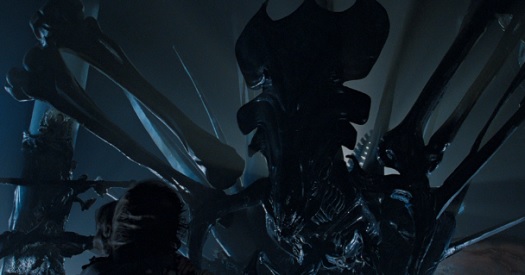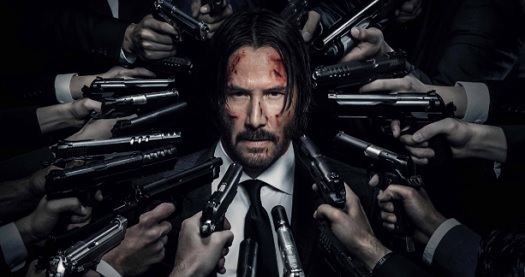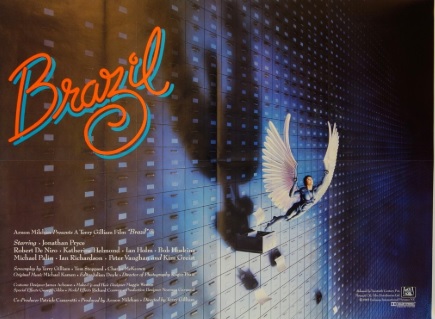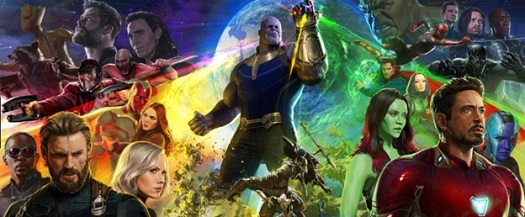Intermarkets' Privacy Policy
Donate to Ace of Spades HQ!
aceofspadeshq at gee mail.com
Buck:
buck.throckmorton at protonmail.com
CBD:
cbd at cutjibnewsletter.com
joe mannix:
mannix2024 at proton.me
MisHum:
petmorons at gee mail.com
J.J. Sefton:
sefton at cutjibnewsletter.com
Giraffe MMA Cafe
Quick Hits
Arrest in Terrorist Attack on Boise ICE Office: It's an AWFUL
Plus: FBI Raids LA School Superintendent's Home, School District Offices
BAFTA Tourettes Incident Pits the People Who Cancel Over #Racism Against the People Who Cancel Over "Abelism"
CNN: The Economy Is Doing Pretty Well, Just as Trump Claims.
Too Bad It's a Boomcession That Is Leaving So, So Many People Behind.
Democrat "Counter Event" To the SOTU Is, Literally, a Zoo of Lunatics
Trump Directs and Films the Main Political Advetisement for the Midterms
Wednesday Morning Rant
Mid-Morning Art Thread
Jim Sunk New Dawn 2025
Jewells45 2025
Bandersnatch 2024
GnuBreed 2024
Captain Hate 2023
moon_over_vermont 2023
westminsterdogshow 2023
Ann Wilson(Empire1) 2022
Dave In Texas 2022
Jesse in D.C. 2022
OregonMuse 2022
redc1c4 2021
Tami 2021
Chavez the Hugo 2020
Ibguy 2020
Rickl 2019
Joffen 2014
maildrop62 at proton dot me
Saturday Evening Movie Thread 11-17-2018 [Hosted By: TheJamesMadison]
Comparing Movies

One line of argument that I see with relative frequency stems from the conceit of comparing two movies against each other. Over time, I've grown to generally dislike the practice of comparing movies to each other. I find it to be of limited use, but many people consider it a valid way to critique a film.
The argument usually goes along the lines of something like this: Movie A did x this way. Movie B did x another way. Movie A was successful, so that means that because Movie B did not do x the same way as Movie A, then movie B is bad. An actual example could be someone saying that Aliens is a bad movie because it doesn't retain the horror elements of Alien. Seriously.
So, I've come up with two pairs of movies that compare and contrast quite well, but the relative merits of the films on their own are what drive their relative qualities. John Wick against John Wick Chapter 2 and Brazil against The Zero Theorem.
John Wick Gets Confused

John Wick is a fun action vehicle with just enough plot and character to string along a series of very well made action sequences for about a hundred minutes. Its plot is spare: A former hitman loses his wife to cancer, her last give to him is a cute dog. A punk Russian mob boss's son steals the hitman's car and kills the dog. Said hitman proceeds to murder everyone.
Just the basic plot synopsis is so ridiculously simple to understand and so obviously manipulative with the use of the dog to make it entertaining on its own. It's the stuff of B-movie exploitation films from the 70s, but it's filmed very slickly, produced well, and the action sequences are almost balletic in their execution. It works because it understands the limits of its concept (the brotherhood of hitmen is kind of silly, so it doesn't do too much with it) and where its real strengths lie: those much ballyhooed action sequences.
I believe I'm in the minority opinion, however, about the sequel, John Wick Chapter 2. I found it interminable, slow, confused, and nearly unwatchable.
And, here's where my thesis comes into play, the sequel, in some important ways, is different from the original in key ways that undermine the effectiveness of the movie. It's not because the sequel does things differently than the original that I don't like it. The comparison to the original is really just informative.
John Wick's plot is super simple, as previously described, but John Wick Chapter 2's is shockingly byzantine. I've seen people say, "In the first one, he goes on a rampage because they kill his dog, but in the second they blew up his house!" And that's really not why John does what he does in the movie.
John goes on his second rampage because someone we've never heard of extracted a promise from John (a Marker, a metal disk with a bloody thumbprint inside) in order for John to retire, an exchange of a promise that allowed John to walk away from the hitman life. Note: this is all retconned onto the first movie. There's no hint that this is the situation in the first film, but whatever. John refuses to honor the Marker, new (old) bad guy blows up John's house, and then John goes to the owner of the hitman hotel (The Continental) to get advice. The owner tells him that John is going to break one of the commandments of the hitman underworld if he refuses the contract. So, John takes the job, goes after bad guy's sister, who apparently has a long history with John (this is now about 45 minutes into the film). She takes her own life, and then the bad guy's men try to kill John.
Finally, John goes on a rampage, almost halfway through the movie, and we've spent most of the running time up to that point with confusing world building, retconning of the first movie, and deeply emotional scenes with people we've never met before but are assured have long histories with John.
So, where does the comparison between the first and second movies become useful? John Wick Chapter 2's failures are its own. It does not fail or succeed because of anything that John Wick did. John Wick Chapter 2 fails because the story is a morass of needless detail that bog down an action movie in unearned sentimentality and curious plot mechanics, two things that were completely absent from the original.
Comparing the first movie to the second really just highlights the problems in the second. If John Wick Chapter 2 existed in a vacuum with no previous movie, it would have the exact same problems.
Brazil Goes Digital

Terry Gilliam is equal parts brilliant and frustrating. He has a wonderful comic mind that fit in very well with the rest of Monty Python, but he has almost no discipline when crafting stories. He tends to follow whatever interesting threads (usually visual and design based) while leaving other, more traditional, narrative elements flapping in the breeze. His movies are always messy to a certain extent, but contain differing amounts of wonderfulness within.
I think I fall in with most Terry Gilliam fans and call Brazil his best film (although there are certainly those who call Twelve Monkeys that). The movie is 1984 filtered through Kafka and Gilliam's own visual sensibilities (one of the working titles was actually 1984 1/2). Telling the story of Sam Lowry, a talented young bureaucrat with no ambition other than to live in his own head. He understands the systems and bureaucracies around him, but he has no desire to climb any ladder, content to dream of himself as a warrior in shining armor with wings saving a fantasy woman from monsters. It's only when he finds that fantasy woman in the real world that he decides to live fully in the real world in pursuit of her. He ends up running afoul of the whole system and receiving its wrath for crossing it at all.
The movie is really a deliriously joyful exploration of the humanity killing nature of bureaucracy.
The Zero Theorem shares some aesthetic similarities to Brazil, but little else and the two get compared to each other all the time. Made almost thirty years later, The Zero Theorem also takes place in a dystopian vision of the future where a loner who values his loneliness and tries to buck the system, however the comparisons between the two films really end there. And yet, nearly every review of the film brings up Brazil as though the two should be compared to one another.
First, The Zero Theorem is honestly just not a very good movie. It's interesting enough for a short time, but the central thesis about existential dread really wears thin across the entire runtime. The main character (Qohen Leth played by Christoph Waltz) was intentionally written in a way to distance him from the audience. He always refers to himself as "we". He's completely unconcerned with any material ends, repeatedly refusing to even eat pizza. His central concern, to work at home so he can wait by his phone for a call from an unknown entity that will provide him with purpose, is so oddball that it's hard to empathize with his plight.
The future vision itself is remarkable in its unremarkableness. The movie was made on the cheap for about $8 million in Romania, and the vision of the future includes little else than brightly colored clothes and screens everywhere (including a lot of 2013 era iPhones for some reason). The movie is also largely set on a single set of Qohen's home inside an abandoned church (the movie has its share of heavy-handed symbolism for sure).
So, why does Brazil come up so often in the conversation about The Zero Theorem? I think it's largely lazy thinking. The two movies share very shallow characteristics but almost nothing else. "Terry Gilliam drags us back to Brazil," says The Globe and Mail. "There's no going back to Brazil," declares IndieWire. "A dystopian delight but it lacks Brazil's genius" announces Metro.
Movies! Stand Alone!

The act of comparing one movie to another can be helpful in breaking down films, but how a movie stands in relation to another should be irrelevant to any individual movie's quality.
Is Aliens a different movie from Alien? Did the artists of the second movie chose to make a movie completely different from the original? Should that count against the second movie? Should the merits of the first movie have any bearing on the merits of the second?
Ideally, a critique of a movie should never address any other films. It should take the merits of the individual film on its own, discussing the filmmakers intentions and the successes of the efforts.
Now, I'm sure that there are those who would vehemently disagree. One man, whose reviews are half references to other movies no matter what, is Armond White. His reviews are bursting with notes about how this image in this film is referencing this other image in another film (half the time I haven't even heard of the other film). Take this paragraph from his review of Avengers Infinity War:
What academics call "narrativity" (employing memory and structural awareness in storytelling - the secret to John Boorman's Excalibur) here gets steamrolled by busyness and chronic fits of campy, facetious jokes between swashbuckling hunks Thor, Star-Lord, and erectile-dysfunction-sufferer the Hulk. The drawback to this - a lack of credible substance when characters pretend worry or ambivalence - is worse than Hollywood trashiness. The frantic comic-book mythology merely plays out the form's intrinsic commercialism, not cultural or historical beliefs. The Russo brothers' flippancy doesn't match the brio of Boorman's Arthurian masterpiece. In Excalibur, mythology represented historic human compulsions, resulting in a constantly moving sensual, kinetic, and visual panorama. (Visionary philologist Neil Jordan was billed as Boorman's "creative associate.")
I believe that Armond was trying to sell the idea that the two films (Avengers Infinity War and Excalibur) were both attempting similar things, or that the latter is a degradation of an idea represented by the former. However, the whole thing reads to me like he's saying, "Avengers is different than Excalibur, therefore I don't like Avengers." I find it wholly unpersuasive. It's not a mark against his taste in movies (which I largely don't share), just his technique in talking about film. If the point of his review is to convince me that Avengers Infinity War is trash, I don't think he does a good job doing that because he spends so little time actually talking about the movie itself. Hell, the first paragraph of his review is about Quentin Tarantino.
Take this final paragraph from Richard Brody's negative review of the same movie instead:
But that ending is also a narrative cheap shot, because it doesn't feel like an ending-it feels like the turning point of a movie that is about to enter its heroic final act (which, in this case, will instead be the sequel). The ground rules governing the film's superheroics are undefined and limitlessly malleable: infinite powers mean infinite dramatic possibilities, and none of the limitations by which real lives and choices are constructed and compelled. That's why, for all the colossal C.G.I. kinetics and pyrotechnics of the movie's massive battles and thudding fights, the stakes seem so low. Even the surprising deaths of beloved characters, for all their momentary power to disturb, feel cheap, because the powers of superheroism-amped up by the reversibility of time thanks to the time stone-make no result seem conclusive, no death seem final. The redemptive heroics that are doubtless forthcoming in the next episode are little to look forward to; they have the inevitability of the calendar.
I find this reasoning much more persuasive. It's not about how well the movie reflects the ethos of another movie from decades ago, but about the merits of the film itself. It talks about the low stakes of the universe and the lack of impact as a result. It brings up plot devices in the film (the time stone) that undermine any emotional grab of the film.
In the specific case of Avengers Infinity War, I find it to be an enjoyable adventure. A fun, pretty good movie, but if either of these two men were trying to convince me that it was less than that, White would fail and Brody would be more likely to succeed.
Movies of Today
Opening in Theaters:
Fantastic Beasts: The Crimes of Grindelwald
Instant Family
Widows
Next in my Netflix Queue:
Jane Eyre
Movies I Saw This Week:
Tess (Netflix Rating 5/5 | Quality Rating 4/4) Poster blurb: "Handsomely produced, impeccably acted, and emotionally compelling." [Netflix DVD]
The Zero Theorem (Netflix Rating 2/5 | Quality Rating 1.5/4) "An unengaging, visually uninspiring misfire from Gilliam." [Netflix DVD]
Dersu Uzala (Netflix Rating 5/5 | Quality Rating 4/4) "A marvelous curio from Kurosawa's filmography that highlights such a marvelous humanism." ["Library"]
Green for Danger (Netflix Rating 5/5 | Quality Rating 3.5/4) "Full of wit and intelligence, it's a whodunit made with great craft." ["Library"]
Captain Horatio Hornblower (Netflix Rating 3/5 | Quality Rating 2.5/4) "Adapted from three novels, and it feels it." ["Library"]
Silver Bullet (Netflix Rating 2/5 | Quality Rating 1.5/4) "Poorly assembled with unnecessary distractions all over the place. I'm not even sure it would appeal to kids." ["Library"]
Spotlight (Netflix Rating 5/5 | Quality Rating 3.5/4) "Absolutely engrossing film about the process of taking a bombshell story to print against incredible pressures." [Netflix Instant]
We Need to Talk about Kevin (Netflix Rating 5/5 | Quality Rating 3.5/4) "A portrait of a woman who raised pure evil, and the guilt the pervades her because of it." [Amazon Prime]
Allied (Netflix Rating 5/5 | Quality Rating 3.5/4) "Mature and intelligent spy tale that is so underrated." [Amazon Prime]
You Were Never Really Here (Netflix Rating 4/5 | Quality Rating 3/4) "Incredibly well made, but it seems written with the purpose of keeping the audience at a distance, which blunts the film's impact." [Amazon Prime]
Outlaw King (Netflix Rating 5/5 | Quality Rating 3.5/4) "Grungy and beautiful with strong performances and a great sweep." [Netflix Instant]
Hold the Dark (Netflix Rating 5/5 | Quality Rating 3.5/4) "Jeremy Saulnier is fast becoming my favorite filmmaker of his generation." [Netflix Instant]
Contact
Email any suggestions or questions to thejamesmadison.aos at symbol gmail dot com.
I've also archived all the old posts here, by request. I'll add new posts a week after they originally post at the HQ.
Just the punchline : "Really tall turkey basters. ..."
ini link scam: "I do not even know how I ended up here, but I thou ..."
mindful webworker - moovin on: "It's about that time again. Pay your cafe tab and ..."
mikeski: "[i]How are we supposed to get new giraffes then? ..."
Kindltot: "[i]How are we supposed to get new giraffes then? ..."
four seasons: " One of the coolest jobs one of my son's employee ..."
Lizzy [/i]: ">>If I were the King of the forest, there wouldn't ..."
Nerdeen Kiswani, Islam >>> NYC dogs: "[i]I know folks who own rural property in the Mark ..."
BurtTC: "No fucking giraffes either. Posted by: The Coward ..."
BurtTC: "BurtTC, My comment wasn't a slam against you fo ..."
The Cowardly Lion: "If I were the King of the forest, there wouldn't b ..."
Giraffe MMA Cafe
Quick Hits
Arrest in Terrorist Attack on Boise ICE Office: It's an AWFUL
Plus: FBI Raids LA School Superintendent's Home, School District Offices
BAFTA Tourettes Incident Pits the People Who Cancel Over #Racism Against the People Who Cancel Over "Abelism"
CNN: The Economy Is Doing Pretty Well, Just as Trump Claims.
Too Bad It's a Boomcession That Is Leaving So, So Many People Behind.
Democrat "Counter Event" To the SOTU Is, Literally, a Zoo of Lunatics
Trump Directs and Films the Main Political Advetisement for the Midterms
Wednesday Morning Rant
Mid-Morning Art Thread
Paul Anka Haiku Contest Announcement
Integrity SAT's: Entrance Exam for Paul Anka's Band
AllahPundit's Paul Anka 45's Collection
AnkaPundit: Paul Anka Takes Over the Site for a Weekend (Continues through to Monday's postings)
George Bush Slices Don Rumsfeld Like an F*ckin' Hammer
Democratic Forays into Erotica
New Shows On Gore's DNC/MTV Network
Nicknames for Potatoes, By People Who Really Hate Potatoes
Star Wars Euphemisms for Self-Abuse
Signs You're at an Iraqi "Wedding Party"
Signs Your Clown Has Gone Bad
Signs That You, Geroge Michael, Should Probably Just Give It Up
Signs of Hip-Hop Influence on John Kerry
NYT Headlines Spinning Bush's Jobs Boom
Things People Are More Likely to Say Than "Did You Hear What Al Franken Said Yesterday?"
Signs that Paul Krugman Has Lost His Frickin' Mind
All-Time Best NBA Players, According to Senator Robert Byrd
Other Bad Things About the Jews, According to the Koran
Signs That David Letterman Just Doesn't Care Anymore
Examples of Bob Kerrey's Insufferable Racial Jackassery
Signs Andy Rooney Is Going Senile
Other Judgments Dick Clarke Made About Condi Rice Based on Her Appearance
Collective Names for Groups of People
John Kerry's Other Vietnam Super-Pets
Cool Things About the XM8 Assault Rifle
Media-Approved Facts About the Democrat Spy
Changes to Make Christianity More "Inclusive"
Secret John Kerry Senatorial Accomplishments
John Edwards Campaign Excuses
John Kerry Pick-Up Lines
Changes Liberal Senator George Michell Will Make at Disney
Torments in Dog-Hell
The Ace of Spades HQ Sex-for-Money Skankathon
A D&D Guide to the Democratic Candidates
Margaret Cho: Just Not Funny
More Margaret Cho Abuse
Margaret Cho: Still Not Funny
Iraqi Prisoner Claims He Was Raped... By Woman
Wonkette Announces "Morning Zoo" Format
John Kerry's "Plan" Causes Surrender of Moqtada al-Sadr's Militia
World Muslim Leaders Apologize for Nick Berg's Beheading
Michael Moore Goes on Lunchtime Manhattan Death-Spree
Milestone: Oliver Willis Posts 400th "Fake News Article" Referencing Britney Spears
Liberal Economists Rue a "New Decade of Greed"
Artificial Insouciance: Maureen Dowd's Word Processor Revolts Against Her Numbing Imbecility
Intelligence Officials Eye Blogs for Tips
They Done Found Us Out, Cletus: Intrepid Internet Detective Figures Out Our Master Plan
Shock: Josh Marshall Almost Mentions Sarin Discovery in Iraq
Leather-Clad Biker Freaks Terrorize Australian Town
When Clinton Was President, Torture Was Cool
What Wonkette Means When She Explains What Tina Brown Means
Wonkette's Stand-Up Act
Wankette HQ Gay-Rumors Du Jour
Here's What's Bugging Me: Goose and Slider
My Own Micah Wright Style Confession of Dishonesty
Outraged "Conservatives" React to the FMA
An On-Line Impression of Dennis Miller Having Sex with a Kodiak Bear
The Story the Rightwing Media Refuses to Report!
Our Lunch with David "Glengarry Glen Ross" Mamet
The House of Love: Paul Krugman
A Michael Moore Mystery (TM)
The Dowd-O-Matic!
Liberal Consistency and Other Myths
Kepler's Laws of Liberal Media Bias
John Kerry-- The Splunge! Candidate
"Divisive" Politics & "Attacks on Patriotism" (very long)
The Donkey ("The Raven" parody)

